Location: Venezuela
Dates: May 2015 – September 2017.
Description:
This project investigates unresolved and fragmented memories linked to non-official history of un-grieved state political violence in Venezuela in the 1960’s. It proposes to give evidence of a particular story and place set within the Latin American leftist uprising amidst the global Cold War climate. This multi-year project uses participatory artistic processes within art-based research, disciplines of narrative inquiry and poetic interventions to address historical trauma. Geographic, social and personal markers are being created and registered in a many-media poetic forensic archive. By poetic forensics I refer to a subtle non-linear process of investigating this story after the fact and presenting it in a public forum. The questions driving the project are firstly, could working sensitively with historical-social trauma be seminal for change and igniting the imagination towards an affirmation of life? Secondly, can artistic processes become tools for providing insight into such a premise? Thirdly, how do personal stories extend into a collective story that becomes history and how do we embody land and memories linked to historical trauma that have been made-to-disappear? The title of this work, references Sophocles’ Antigone, who defied the established power so that her dissident rebel brother could be given proper funeral rites.

Context:
The issue of unresolved grief due to the disappearance of political activists in Latin America and specifically in Venezuela has seldom been addressed. This “historical amnesia”[1] has contributed to a great silence around the experiences of loss and trauma caused by organized state violence. A few years ago, I began an artistic personal investigation that focused on how grief and mourning may come to be expressed with the support of the imagination. My work, At the edge of the (far-)End, specifically looked into complicated grief: disappearance, trauma, and sudden ruptures of reality by incidents of violence (Stroebe & Schut[2]) and how this complicated grief can become manifested in one’s life as a state of melancholia (Freud). The melancholic suffers from an abyss separating language and its referents, suggesting that a new language form is required; in this way, the work itself developed by using the imagination, poetic narratives and artistic processes to make sense of the loss and discover, at least partially, truth surrounding the disappearance of my father by the Venezuelan state in the 1960’s.
[1] Galeano, E. We say no. (Mark Fried, Trans.) New York: Norton, 1992, p150.
[2] Stroebe M. and Schut H., “The dual process model of coping with bereavement: rationale and description.” Death Studies 23, no. 3 (April 1999), p.197-224.
References:
Abram, D. (1996). The spell of the sensuous: Perception and language in a more-than-human world. New York: Pantheon Books.
Beverley, J. (2011). «Repensando la lucha armada en América Latina», Revista Sociohistórica / Cuadernos del CISH # 28, La Plata, pp. 163 -176.
Bloch, E. (1986). The principle of hope. Cambridge, Mass.: MIT Press.
Bloch, E., & Zipes, J. (1988). The utopian function of art and literature: Selected essays. Cambridge, Mass.: MIT Press.
Butler, J. (2006). Precarious Life:The Powers of Mourning and Violence, Verso, London, UK.
__________ (2009). Frames of war: When is life grievable? London: Verso.
Mills, C. (1959). The sociological imagination. New York: Oxford University Press.
Packard, N. (2009). Sociology of memory: Papers from the spectrum. Newcastle upon Tyne: Cambridge Scholars Pub.
Phelan, P. (1993). Unmarked: The politics of performance. London: Routledge.
Rolnik, S. (2005). «El ocaso de la víctima», Criterios, La Habana, http://www.criterios.es/pdf/zeharrolnikocaso.pdf
__________ (2010). «Furor de archivo», Estudios Visuales, pp. 116 -130, available at: www.estudiosvisuales.net/revista/pdf/num7/08_rolnik.pdf
Sánchez G, Adriana (2012). «Antígona. Performance y género. Mujeres en la plaza» de Patricia Ariza, Memorias de Jalla Colombia, X Jornadas de andinas de literatura latinoamericana, Universidad del Valle, Cali.
Soderback, F. (2010). Feminist readings of Antigone. Albany: State University of New York Press.
web links:
http://livia-rafaela-daza-paris.com
http://livia-rafaela-daza-paris.com/works/




